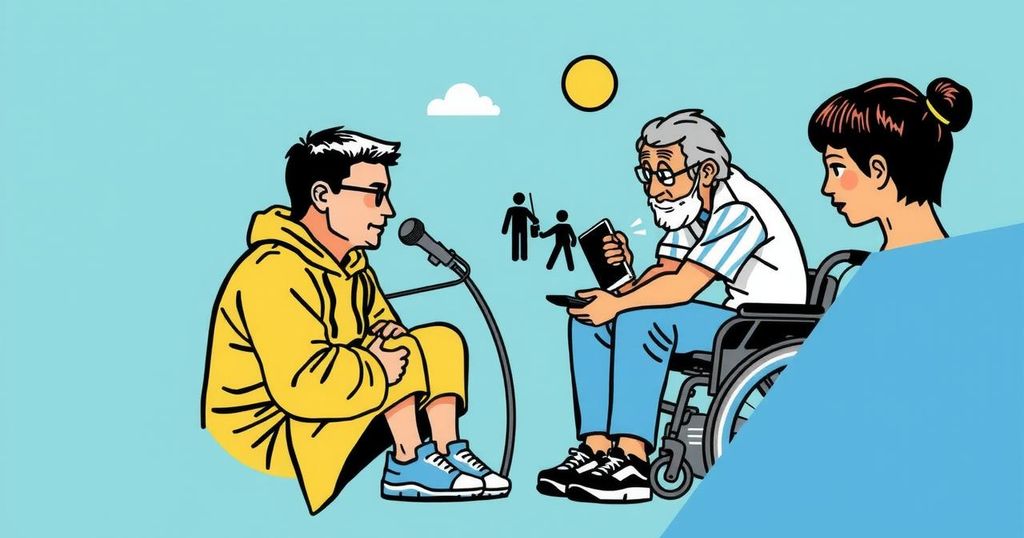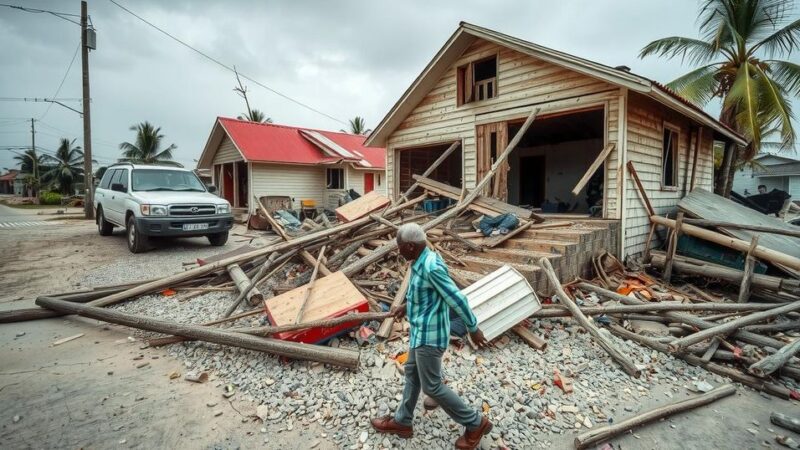Persons with disabilities face heightened vulnerabilities due to climate change and extreme weather events. With approximately 1.3 billion individuals affected globally, this demographic often encounters barriers in emergency response and medical care, leading to increased mortality rates during climate crises. Advocates like Amina Audu emphasize the necessity for formal inclusion in climate discussions and the urgency of developing tailored solutions to address these unique challenges.
The effects of climate change disproportionately affect individuals with disabilities, exacerbating their vulnerabilities during extreme weather events. For instance, a person confined to a wheelchair may struggle during a hurricane, while someone with diabetes might suffer severe health impacts during a heat wave. Given that approximately 16% of the global population—over 1.3 billion individuals—live with disabilities, these challenges demand urgent attention. Amina Audu, a prominent Nigerian disability activist, emphasizes that those with disabilities, especially in the global south, are significantly impacted by climate events, facing barriers in mobility, health care access, and emergency responses.
During climate emergencies, individuals with disabilities often experience reduced access to essential medical treatments and support. For example, the loss of electricity can jeopardize the operation of necessary devices such as wheelchairs and ventilators. As a result, people with disabilities are two to four times more likely to perish in such disasters. Chronic conditions, including respiratory illnesses and mental health disorders, can further complicate their vulnerabilities. Dr. Kimberly Humphrey, an Australian emergency physician, indicates that medications may interact unfavorably with extreme heat, worsening health outcomes.
Despite these heightened risks, disaster response plans often neglect the needs of people with disabilities. Dr. Humphrey states that existing systems are generally designed with able-bodied individuals in mind.
Moreover, individuals with disabilities are underrepresented in climate dialogues like the United Nations Framework Convention on Climate Change (UNFCCC). Amina Audu, who advocates for the inclusion of disability perspectives, believes that establishing a formal disability constituency is crucial for integrating these urgent issues into climate policies.
In Nigeria, Amina is actively promoting solutions through initiatives such as Rebuilding Hope on Wheels, which focuses on empowering individuals with disabilities to play a vital role in climate action. Such initiatives are vital for building advocacy and creating resilience in affected communities.
In collaboration with health professionals, Amina and others are conducting significant research into the intersection of climate change and disability, fostering awareness and educating emerging healthcare professionals.
The growing call for inclusion resonates in the rallying cry, “Nothing Without Us,” reflecting the determination among disability advocates to ensure their voices are integral to discussions on climate and development. The upcoming Global Disabilities Summit in Berlin in 2025 will aim to further advance disability-inclusive development, particularly in the global south and promote tangible actions to uphold the rights of individuals with disabilities in climate conversations.
To attain equitable and inclusive futures, it is imperative to involve persons with disabilities in all levels of climate change discourse and champion their rights as essential stakeholders in developing solutions to the climate crisis.
The vulnerabilities of persons with disabilities are often exacerbated by climate change, which disproportionately impacts individuals with mobility challenges, chronic illnesses, and mental health disorders during extreme weather events. The critical barriers these individuals face include reduced access to medical care and appropriate resources during emergencies, heightening their risks during disasters. The call for inclusive policies and representation of persons with disabilities in climate discussions is pivotal for addressing their unique challenges and ensuring equitable response and adaptation strategies are established in global climate frameworks.
The effects of climate change amplify the vulnerabilities of individuals with disabilities, necessitating urgent action to include their perspectives in climate planning and adaptation efforts. The exclusion of disability considerations in public emergency responses and climate discussions underscores the importance of increasing advocacy and formally representing persons with disabilities in these critical dialogues. Initiatives led by individuals like Amina Audu exemplify the essential contributions that advocacy and community-led efforts can make in mitigating the impact of climate change and promoting inclusivity, resilience, and empowerment within affected communities.
Original Source: www.globalcitizen.org







